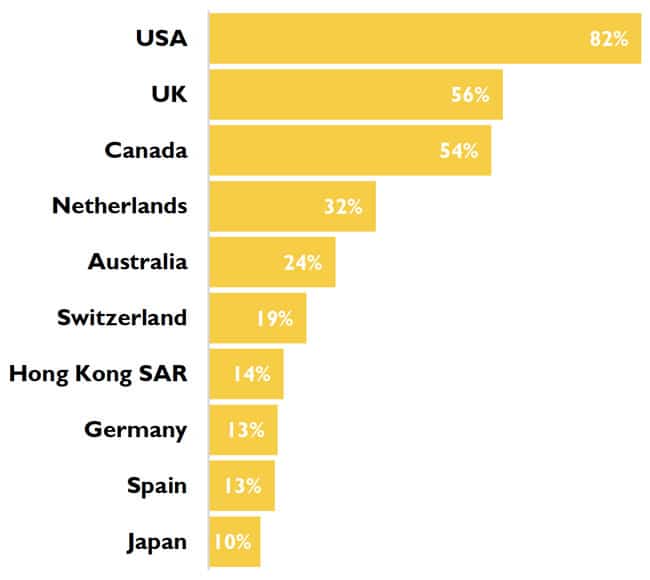Engaging with international schools as a distinct recruitment channel
International schools offering K-12 English-medium instruction represent an increasingly important source of high-calibre students to universities around the world. Their reputation as a springboard for students into prestigious universities is a key reason the international school market is now a multi-billion-dollar industry, with 10,000 schools worldwide catering to more than five million students. And the sector’s track record of graduating students with higher-than-average academic results is all the more remarkable because English is not the first language for 80% of students enrolled. With these schools graduating such high-quality students, university recruiters are naturally paying greater attention to the international schools channel in recent years. A recent ISC Research report, “Higher Education Report: Pathways from K-12 English-medium International Schools to University 2018,” reveals that a key to recruiting success in this area is strong relationships between universities and international school college counsellors. The ISC report underlines the importance of college counsellors to universities’ recruiting goals:
“College counsellors provide the opportunity for universities to develop ongoing, sustained relationships with a vital source of quality candidates. Engaged college counsellors act as an internal representative for a university: a collaborative practice which is further enhanced by alumni success at the institution.”
Boosting engagement
In general, universities are engaging more with international schools than they were in 2017: nearly 50% of international school college counsellors said that universities from more countries were now promoting their degrees to the school and its students. Similarly, 20% of respondents to the 2018 study said that they were seeing more recruitment activity compared to a year earlier.
There is evidence of a strong correlation between those universities that are engaging with international schools and those that are securing the greatest number of enrolments from them. The top destinations for international school graduates are the US, UK, Canada, and the Netherlands, and surveyed college counsellors indicated that universities in those same countries are the ones that are most actively engaging with them.

- “Universities collaborate well for school visits and fairs;
- Universities work directly with them [as opposed to working through agents];
- There is a focus on developing relationships with international school college counsellors rather than simply promoting courses to the school and its students.”
Phone conversations and email correspondence with university admissions officers were cited as key to university–school relationships. College counsellors noted that an overall spirit of relationship building helps to provide a foundation for the volume and pace of communications required when students are considering and applying to universities.
Room for improvement
The most commonly cited areas college counsellors felt would improve their engagement with universities were:
- Access to quick and easy information on visa applications and how to apply (almost 60% said this could be improved);
- More detailed information about course content and more case studies about students already enrolled at the university and on courses themselves (almost 50%);
- More information on the university campus (almost 40%).
In addition, more than half of surveyed college counsellors said that the following were “specific ways” that the links between universities and international schools could be improved. They said universities could:
- Visit the school as part of a cluster of universities (71%);
- Offer fam tours to a group of universities (71%);
- Communicate directly with them (58%);
- Highlight essential details for international students on the university website (57%);
- Visit the school as an individual university (55%);
- Offer fam tours to the university (55%).
Why it matters
A significant reason that many parents enrol their children in international schools is that they want them to be accepted at a good university. The ISC Research report notes, however, that the process of university selection has become “increasingly complex” and that “for some international schools, the guidance of students at this pivotal stage of their life may be lacking.” It stands to reason that universities that prioritise real engagement with college counsellors will gain a competitive edge by making it easier for counsellors to perform a key aspect of their jobs: helping students to be admitted into universities and programmes that best fit their needs, skills, and dreams. For additional background, please see:















